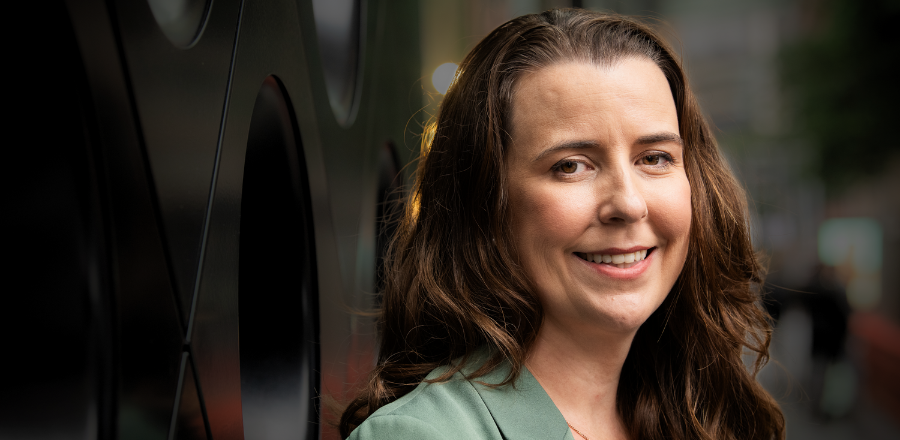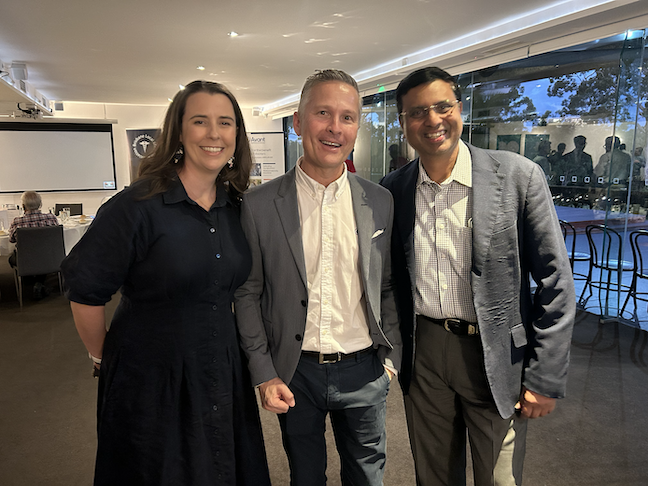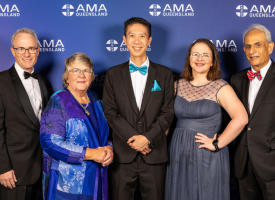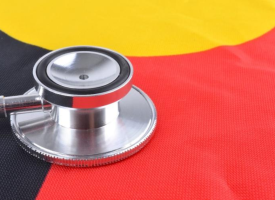President’s update: Public hospital report card, Medicare, physician assistants, rural doctors and more…
AMA President Dr Danielle McMullen provides an update on the past week at the national AMA.

Hello again and happy Friday to you all!
We’re in the middle of some absolutely massive weeks at national AMA, with the launch of more report cards, more budget submissions, so many meetings, and some big funding announcements from government.
Today I’m in Sydney to launch our latest Public Hospital Report Card with our colleagues from AMA NSW. While there a glimmer of hope with some improvements in ED wait times and elective surgery on-time performance since last year, 5-year trends are all still waaaay down. So, we must keep up the fight for fair funding of public hospitals. You’re all running ragged and doing more with less for an ever-growing list of patients with more complex presentations. Our report card is a vital tool in demonstrating the effects of underinvestment in health.
As you saw in my email last weekend (and all over the news) there was a huge announcement of funding for general practice — $8.5 billion. This announcement, now matched by the coalition is the largest ever investment in general practice since the beginning of Medicare. While this quantum is great, and the policy will help some patients and practices particularly in disadvantaged areas, we know it's not enough to meet the costs of running many private practices and doesn’t fix the underlying structural problems in Medicare. That’s why we’ve been calling for true reform of Medicare — through our Modernise Medicare plan we could achieve better supports for all patients and GPs. Better support particularly for longer consultations, complex care and mental healthcare. We will keep pushing for this essential restructure of the underlying rebates.
There has been a lot of talk about scope of practice here, but we’re not alone. I wrote to the British Medical Association (BMA) this week on the issue of physician assistants (PAs) following their request for advice in response to the independent review of the physician associate and anaesthesia associate professions in the UK. I told the BMA of the issues in the Australian context, including the lack of evidence for the need for PAs in Australia, our concerns regarding scope of practice and quality of care, and that PAs represent shortsighted solutions that can only be solved by investing more in training our existing health and medical workforce.
Last weekend I attended meetings of our Council of Rural Doctors (CRD) and our Ethics and Medico-Legal Committee (EMLC). CRD discussed the soon-to-be-released rural health issues survey report, with members reflecting on the survey results and discussing strategy on policy and advocacy efforts in the lead-up to the federal election. I told CRD about the relevance of the Modernise Medicare campaign for rural communities, and how it aims to make Medicare and general practice accessible and affordable to all Australians across the country. We had great discussions about how to increase training in rural areas, as well as attraction and retention of rural doctors.
My thanks to EMLC who wrestle with some incredibly difficult topics. This meeting was no exception as the updated voluntary assisted dying (VAD) position statement is nearing completion. My thanks to everyone who has provided input to the AMA’s position on VAD.
In the week of committees, our Mental Health Committee met this week and had a really topical discussion about the role of GPs in the assessing and treating mental illness, particularly ADHD. We also discussed the psychiatry workforce crisis in NSW, and upcoming Medicare changes to GP mental health items.
We met with Ahpra this week to continue to advocate for doctors on the issue of notifications, especially vexatious ones, and the stress they cause doctors. We raised the issue of escalating fees, and reminded Ahpra yet again, that practitioner experience must be a core consideration of theirs.
In a busy week of meeting members, I had the privilege of attending the Brisbane Local Medical Association on Tuesday, and the QLD Medical Women's Society meeting on Thursday. I'm so grateful to both organisations for inviting me along and giving me the opportunity to talk with so many doctors about what the AMA is doing, but more importantly to answer questions and have conversations about the issues that are important to them. The upcoming election was certainly on everyone's mind!

Thanks to everyone who attended our joint webinar on Monday with LGBTIQ+ Health Australia (LHA) on LGBTQIA+ healthcare. The webinar was great and there were loads of tips for providing inclusive healthcare, as well as discussion on all the excellent work the AMA is doing to promote health workplaces as safe places for LGBTQIA+ doctors and patients. I would encourage everyone to watch the recording of the webinar.
I’m really excited to join the AMA’s first ever float in the Sydney Gay and Lesbian Mardi Gras tomorrow night and catching up with colleagues from AMA NSW and AMAQ at the event. I’ll undoubtedly have some terrific photos to share with you all next week! I’ll then be headed straight to Western Australia for a week of catching up with AMA WA members. I’ll update you all on this next week too.
Finally, I really need to highlight the fact that so much of the work we do at the AMA is only because of the staff who make so much of this happen. I am forever amazed by the breadth and depth of their expertise. And I must particularly highlight the work of Michelle Grybaitis in our national office who has very recently marked 35 years with the AMA! Michelle is currently managing our medical services team in the AMA Fees List, and many of you will know her through her previous work in our GP policy team and her time at CPD home. Congratulations Michelle and thank you for all your terrific work.



